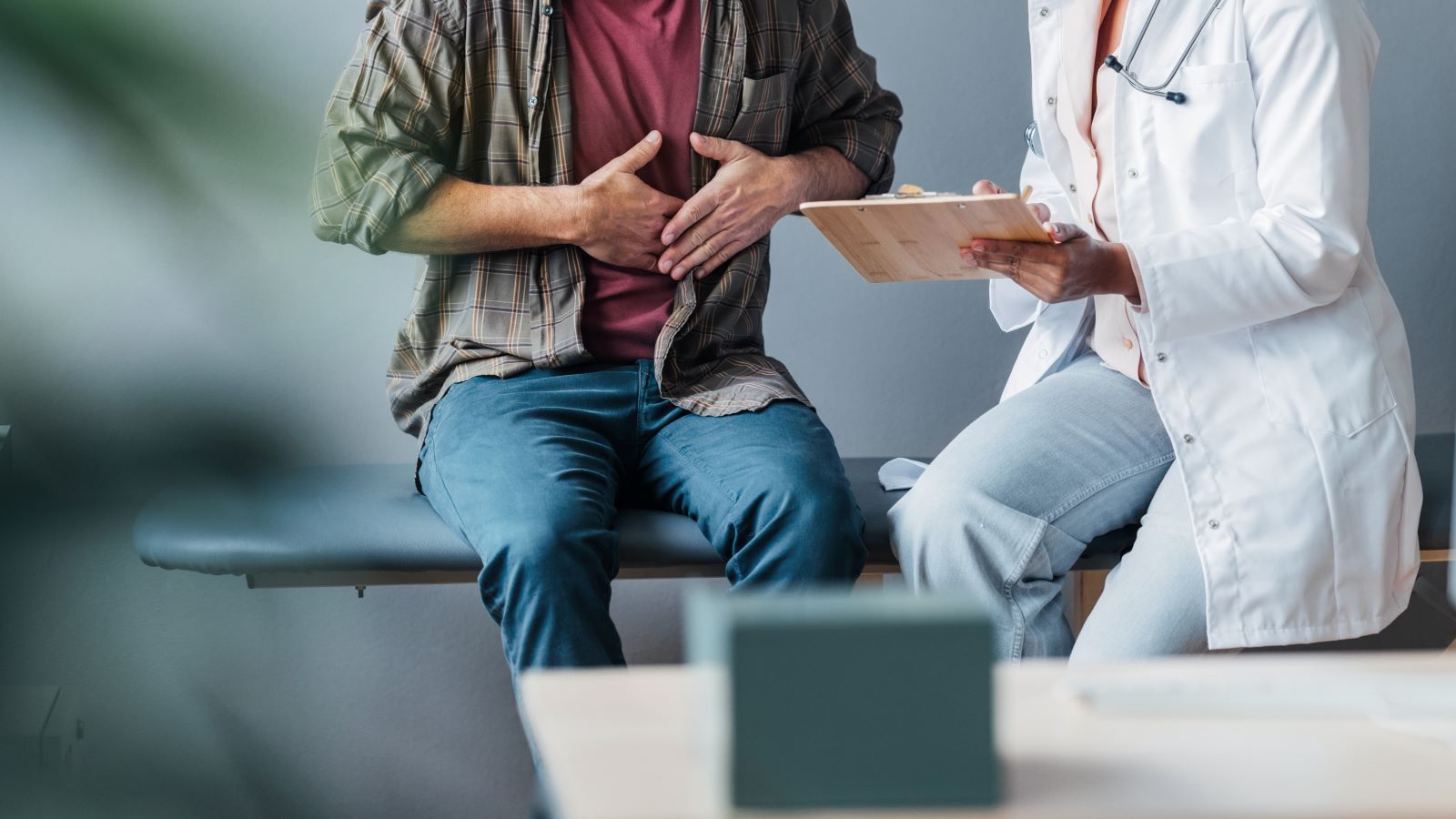<< Back
7 Health Screenings You Should Never Skip

October 16, 2025
No one’s excited to book a doctor’s appointment just to get poked, prodded or tested — especially when you feel perfectly fine.
But here’s the thing: that’s exactly when screenings matter most.
“Screenings are designed to find health issues early, often before you have symptoms,” says Michael O’Neill, MD, primary care provider with Hartford HealthCare Medical Group. “They give us a chance to act before things become serious.”
So, which ones are worth making time for? Here are seven screenings you don’t want to skip.
1. Blood pressure
It’s one of the easiest screenings to get — quick, painless, and often free at your local pharmacy. But it’s also one of the most important.
“High blood pressure is called the silent killer for a reason,” says Dr. O’Neill. “It usually has no symptoms, but it raises your risk for heart attack and stroke.”
That’s why even if you feel perfectly healthy, you should check your blood pressure regularly. Early detection gives you time to make small changes — like reducing salt, staying active, and managing stress — before serious complications develop.
> Related: What Your Blood Pressure Says About Your Health
2. Cholesterol
You won’t feel high cholesterol building up, but your arteries will.
“A simple blood test is all it takes to see if your cholesterol is high,” Dr. O’Neill says. “And if it is, we can help lower it with diet, lifestyle changes or medication — before it causes serious trouble.”
Think of your cholesterol test as a peek under the hood of your heart health. Keeping your numbers in check with regular screenings, heart-healthy foods, and daily movement is one of the best ways to prevent problems later.
> Related: What Your Cholesterol Numbers Mean
3. Colon cancer
Nobody likes the idea of a colonoscopy. But here’s the truth: colon cancer is one of the most preventable – and treatable – cancers when it’s caught early.
“Screening should start at age 45, or earlier depending on you have a family history,” Dr. O’Neill explains. “It can absolutely save your life.”
If you’re not ready for a colonoscopy, check in with your doctor about other options — including stool-based or at-home tests. The key is not to skip screening altogether.
> Related: Why Young Adults May Want to Get Screened for Colon Cancer Before Age 45
4. Diabetes
Diabetes often sneaks up without warning. It can quietly affect your energy, eyesight, and circulation long before any obvious symptoms appear.
“Type 2 diabetes develops gradually, often with no obvious symptoms,” says Dr. O’Neill. “A basic blood test can pick it up early, when lifestyle changes can still make a big difference.”
That early window is critical. Eating balanced meals, staying active, and managing your weight can help keep blood sugar steady and even reverse prediabetes. A blood sugar test is worth having, especially if you have risk factors like high blood pressure, a family history, or extra weight around your midsection.
5. Mammograms
Mammograms remain one of the best ways to detect breast cancer early — when treatment is most effective and survival rates are highest.
“For most women, mammograms start at 40 and continue every one to two years,” Dr. O’Neill says. “It’s quick, and it works.”
If you’re unsure when to start, talk to your provider about your risk level and options.
> Related: At What Age Should I Start Getting Mammograms?
6. Cervical cancer
Pap smears and HPV tests don’t just catch cancer — they help prevent it by finding changes before they turn into something serious.
“These are simple, effective screenings that have dramatically reduced cervical cancer rates,” says Dr. O’Neill.
Woman usually need testing every three to five years, depending on their age and results. Staying on schedule is key — and if you’re not sure when your last Pap was, it’s an easy conversation to have with your doctor.
> Related: How Do Pap Smears Prevent Cervical Cancer?
7. Skin checks
If you’ve noticed a new mole or one that looks different, don’t ignore it. Skin changes can be an early sign of melanoma or other types of skin cancer.
“Skin cancer is one of the most common cancers, and has significantly increased among adults under 30, but it’s also treatable if caught early,” Dr. O’Neill says. “Your doctor can do a quick check, or you can see a dermatologist.”
You can do a quick self-check once a month, using the “ABCDE” rule — look for moles that are asymmetrical, have irregular borders, uneven color, a large diameter, or are evolving in size or shape. Then, schedule a full-body skin exam with a dermatologist once a year.
> Related: Where to Check for Skin Cancer Based On Your Gender
Here’s the takeaway
Nobody wakes up excited for a health screening – but it might be the most important appointment you ever make.
“Screenings aren’t about finding health problems,” says Dr. O’Neill. “They’re about preventing them. They’re one of the best investments you can make in yourself.”
So go ahead — book the appointment. Your body will thank you, and your peace of mind will, too.